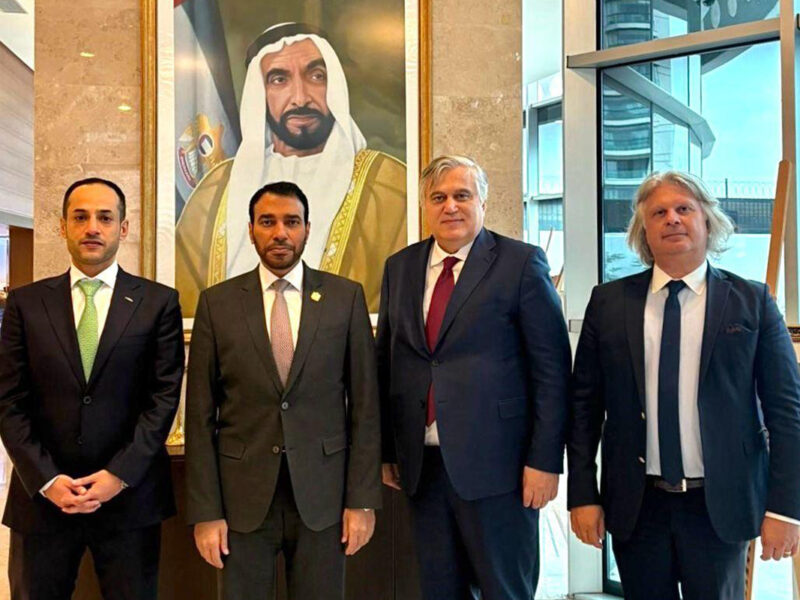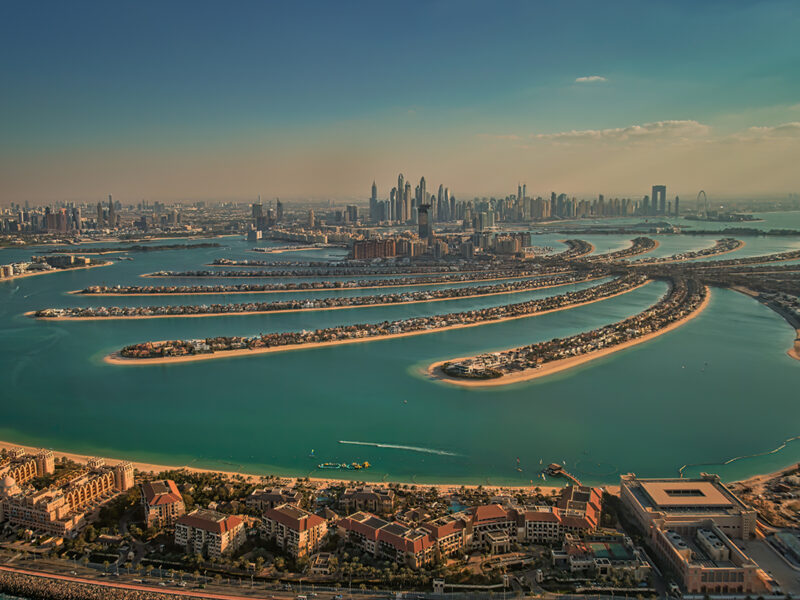From Qatar’s Al Jazeera television channel and Bahrain’s Gulf Air to the UAE Central Bank, many high-profile Arab companies have been targeted by internet hackers in recent years. Luckily for Kuwait, the Gulf state has so far remained relatively immune to cyber attacks.
“I think our network is secure, but nothing is 100 percent. For some major clients we do alert them if they are getting attacks,” says Waleed Saleh Al Qallaf, chief executive of Qualitynet, Kuwait’s largest internet provider.
“Why are people not sniffing at your network?” Al Qallaf ponders. “Because they are not interested, maybe nobody is looking to Kuwait at the moment… [but] once they do, they can hack their network and destroy it,” he warns. “We tell them that they are getting attacks… [but] it is up to the customer to put a firewall and put in a security policy.”
While Kuwait may not be high on the target list for cyber criminals, Al Qallaf reveals the country’s internet sector has attracted some keen international interest. Despite having a population of just over 3 million, a maturing market and challenging growth rates, Al Qallaf says Qualitynet is currently being courted by a major international operator — on a par with names such as Orange, Vodafone or Virgin — for a potential takeover bid.
“Yes, one major [deal] is going on now, talking with the owners of Qualitynet and the owners of that entity. They have an interest to acquire us,” he says cryptically, but is reluctant to reveal any more details of who the prominent potential buyer might be.
You could be forgiven for wondering about the attractions of Kuwait and its tiny internet market. According to data from InternetWorldData.com, Kuwait’s 1.9 million users make up just 2.2 percent of the entire Middle East market of 223.6 million users, which itself only accounts for 3.7 percent of the global online community.
Despite this, Kuwait has a strong heritage in this sector and is one of the region’s most mature markets. In 1992, only months after US-led allied troops forced invading Iraqi soldiers out of the country and restored peace, Kuwait became the first country in the Gulf to establish internet services for its consumers.
Qualitynet was only the second internet provider in the country when it was set up in September 1998 after the government sought to privatise the sector and reduce the monopoly of the government-controlled sole operator.
It was launched by a trinity of major players in the region: local conglomerate Ali Alghanim and Sons Industries, telecoms giant Batelco and lender National Bank of Kuwait, and is now the biggest player in the market, ahead of its rivals FastTelco, KEMS and GulfNet.
Kuwait quickly embraced the internet, growing from 150,000 users in 2000 and a penetration rate of 5.8 percent to around 1.1 million within a decade. While penetration rates of 29 percent — according to figures from the International Telecommunications Union (ITU) — were still low, it has sought to increase this and has invested in many programmes over the last two years to boost internet usage and access.
Article continued on next page
Currently, Kuwait has an internet penetration rate of around 74 percent, much more than the UAE (70.9 percent) or Saudi Arabia (49 percent), but just beaten by Bahrain (77 percent) and market leader Qatar (86 percent).
One of the revolutionary moves Qualitynet has introduced that has helped boost lagging penetration rates is access to free internet usage, which was made available this year. “In 2013 we expect growth of around seven percent. The main reason is, since February, we have introduced a free service to the market. The growth now is not declining; the curve is going up again,” Al Qallaf says.
“It is through a third party as we are selling those accounts wholesale and that third party is aiming to establish a good customer base for advertisements. You get a free service but what you get is more ads. If you want to take the free service you accept those ads.”
The free service is a partnership between Qualitynet and Elmnet, a software package that provides households with 2 megabytes per second (Mbps) speed free internet. The publicity material claims this new service will see Kuwait “placed on the global map as the leading country offering free internet.”
When an internet user launches Elmnet, the specialist software automatically resizes the computer desktop and three banners on the right, left and bottom appear around the screen. Once this is complete, the user is connected to the internet and can surf using any browser or check emails.
The customer can click on any advertising banner of his interest and will be automatically transferred to the advertiser’s web site surrounded by the right, left and bottom banners at all times. The ads interchange on the banners around the screen every 30 seconds and will be repeated each and every hour, 24 hours a day.
“That free service is picking up and we think it is going to pick up even more,” says Al Qallaf. Since it was launched in February, 10,000 users have opted for the free Elmnet service, “which is a good number in Kuwait,” Al Qallaf points out.
“We expect once they have a client version that can be sold to mobile phones and iPads then it is going to really pick up,” he predicts. “I think we have some forecasts on this but very conservative, we think it could pick up by another 5,000 as there is a good market for lower class.”
While the free service may be revolutionary, he believes it will have a limited impact as Kuwaitis enjoy relatively cheap internet access already and the price is constantly dropping.
Add to this the fact that oil-rich nationals have plenty of disposable income and he says Kuwaitis are instead keen to pay more for a faster service. “The free option services a certain market segment but a high percentage of Kuwaitis will not go with this as the internet is cheap and they are willing to pay. Most Kuwaitis are demanding higher speeds; once the fibre is there they can move up.
Article continued on next page
“The market segment for [free service] was for the lower labour market. The population is around 3.3 million; Kuwaitis are only 1.2 million and expats around 2 million and from those expats there [are] around half a million very low-paid labourers, they work on the streets. This is not our target segment… they are very low paid, about $150 a month.”
While the free service may be more of a priority for other Gulf states where internet access is more expensive, the low cost in Kuwait is one of the factors contributing to rising penetration rates. Two years ago, in his first interview with Arabian Business when he had spent just a few months in the CEO hotseat, Al Qallaf had big ideas about breaking the government’s stranglehold on the market.
“What makes internet penetration low in terms of subscriptions is that prices are a bit expensive for one simple reason: the infrastructure and the international connectivity is being offered by the government, which is the Ministry of Communication.
“Where we have no control on prices, [the Ministry] sets the prices. Their prices, compared to the regional trend, are very expensive and are triple, if not double, the prices of other countries,” he said at the time.
Al Qallaf claims the industry would remain in the doldrums if nothing is changed and in the last two years he has successfully lobbied to bring about this change. The fees that the government charge have dropped and the end user has been the ultimate winner.
“That has happened… since June 2011 there were two major drops in pricing. The first drop was 42 percent and second was 40 percent. They asked us to reduce the end-user prices and then in return they lowered the prices on us.
“There was, I wouldn’t say a deal, but a compromise as we showed them some figures and the prices we were selling were very aggressive when it comes to the costs we were incurring. So they lowered the costs and the advantage went to the end user.”
Al Qallaf points out how dramatic the pricing levels have dropped. For a 2 Mbps user, two years ago it would have cost around $700 a year. Today, that figure has dropped to around $250, Al Qallaf says.
However, Kuwait’s largely copper-based network cannot carry sufficient bandwidth to satisfy consumer demand for broadband, which is used by just 5.5 percent of the population, Essa Al Kooheji, general manager at Qualitynet, said in late 2012 when the last price cut was introduced.
“We receive lots of calls from customers who want to upgrade and take the maximum speed for the price available, but they cannot do so,” Al Kooheji told Reuters. “The government should put more effort into improving the telecom infrastructure rather than cutting prices.”
Article continued on next page
At present only fifteen percent of homes and offices uses the faster fibre-optic connection, or Gigabit Passive Optical Network (GPON) as it is known in the industry, but Al Qallaf believes investment by the government will help change this and improve the company’s growth levels.
Over the last two years, Qualitynet’s market share has dropped by five percent to 40 percent of the fixed internet market and its annual growth rates have dropped from twelve percent to five or six percent at present, but Al Qallaf believes government investment in GPON will help turn this around.
“There is a plan to expand more. Today about fifteen percent of Kuwait is GPON. Clients are happy with the fibre, most clients on copper are having some problems as it is not a stable service.
“The [market] growth is single digits; it was estimated to be double digit but it is now single. Assuming that everything stays as is, it is not going to improve. But with the plans for GPON, they are now in the pipeline. There are now around 27 areas to go live in GPON in six months, so the more GPON the better the growth,” Al Qallaf says optimistically.
With the domestic market in flux, Al Qallaf is looking abroad for growth opportunities. “We are focusing on a major deal in Egypt and a couple of major deals in Saudi Arabia and we are also looking to Qatar; there has not been much potential at the moment, we think it is going to boom,” he says, adding that the deals on the table are worth in the region of approximately $20m.
The company is also putting efforts into expanding into Iraq: “Today it is for connectivity, not retail, for corporate, mainly oil and gas. We have a partner offering services on the ground so we are putting focus here. We do not have plans in the short term but Iraq is booming and as soon as it becomes stabilised, business will go.”
Back home Kuwait has seen a revolving door of ministers and its parliament has become like a soap opera, but Al Qallaf hopes plans to introduce a telecoms regulator will help propel the sector forward. “There has been talk and it has been a slow cycle… Probably less than six months but my expectation is by the beginning of the first quarter of 2014,” he estimates.
As a market, Kuwait should not be underestimated. It was the first to introduce internet services, the first to offer free services for its citizens and the first to reduce the cost in order to boost usage rates. It’s therefore no surprise some big industry names are circling the market as it’s a good weather vane for developments in the rest of the sector.









